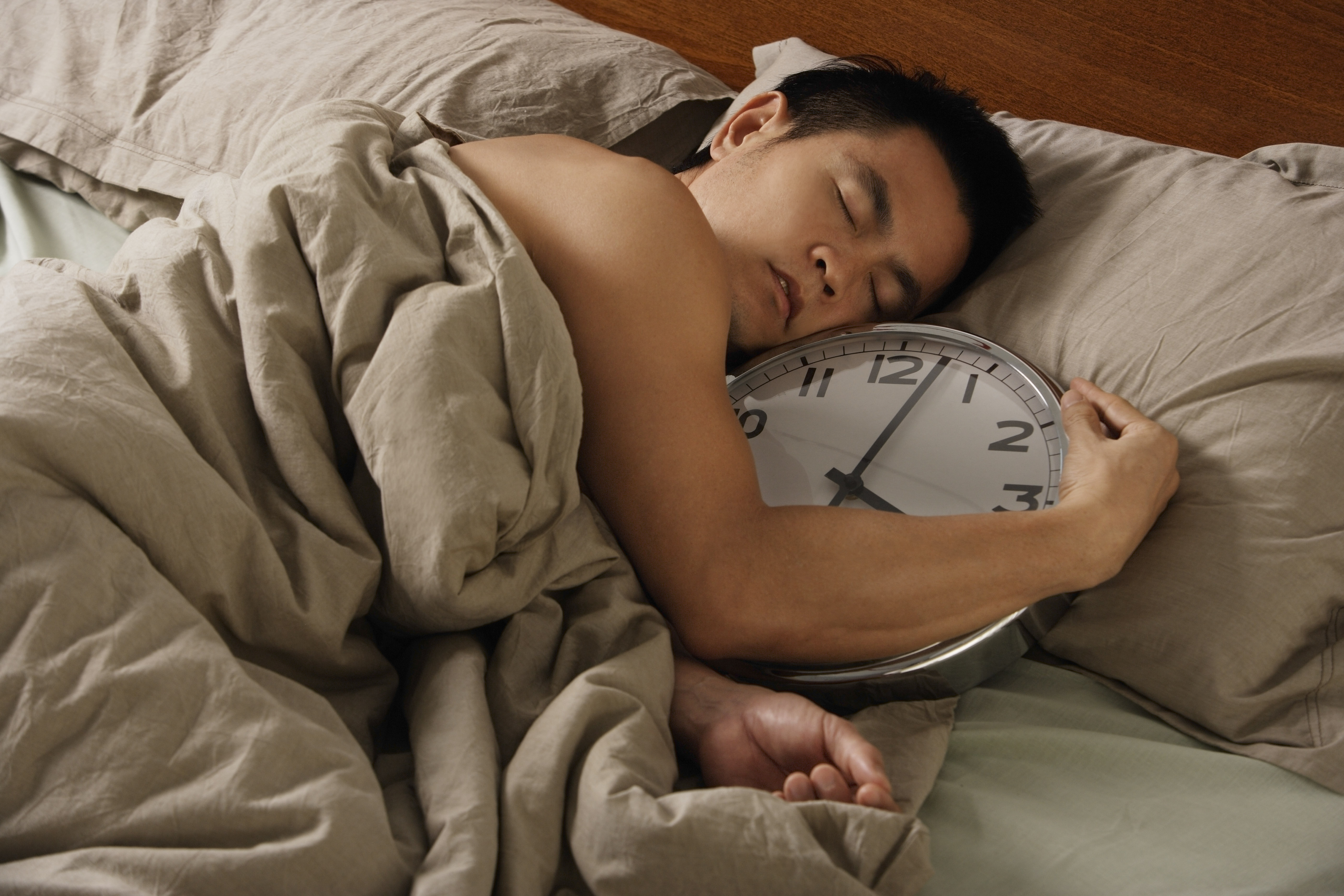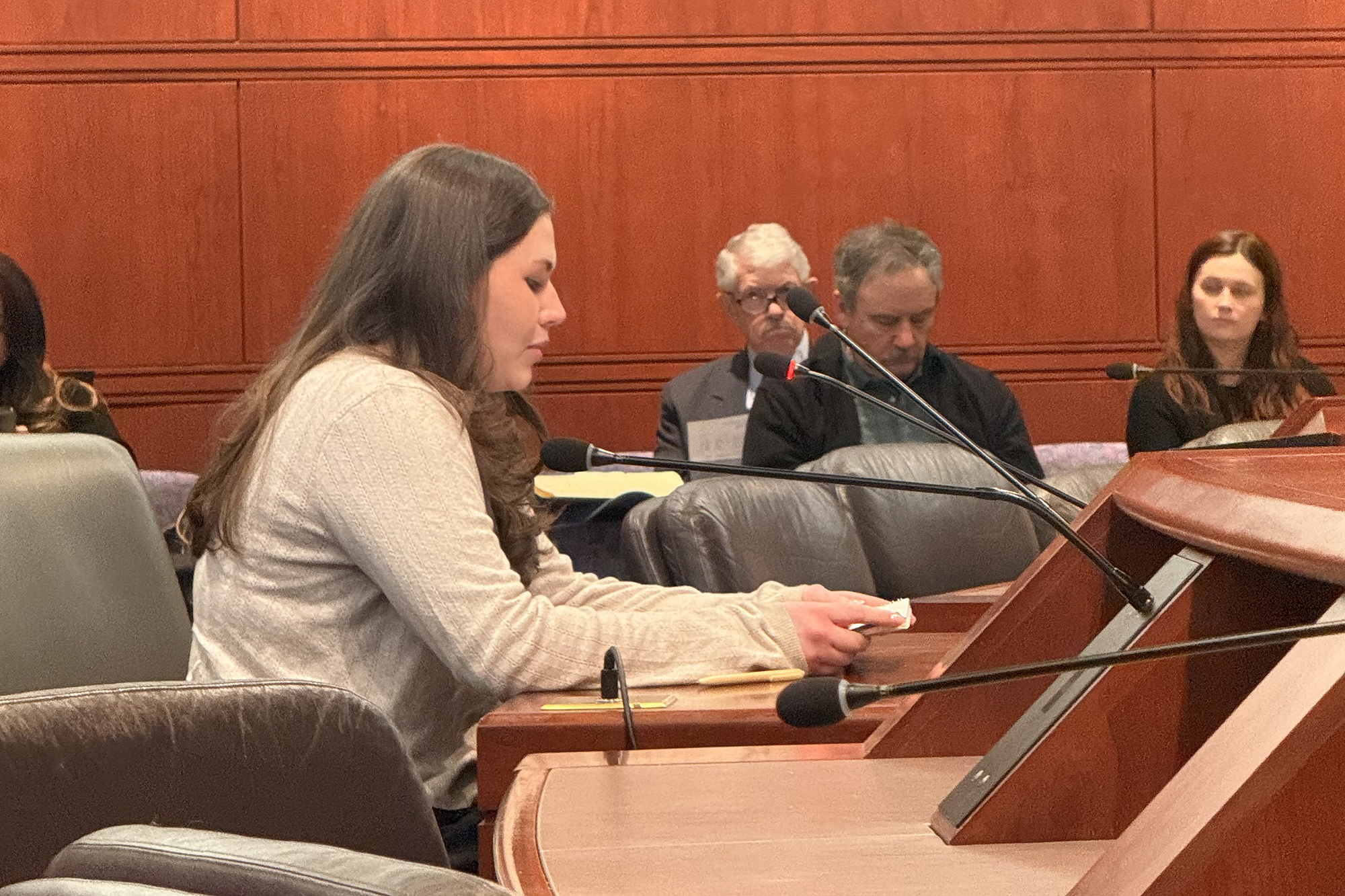That extra hour of sleep this weekend is a short-term gain for most of us. But sleep experts say the return to standard time can be either a wasted opportunity or the start of a good habit that can yield long-term benefits.
The good habit – really a collection of good habits – is making sleep a greater priority in your life. Sleep often gets the short shrift in our daily lives. Going to bed early enough to consistently get a good night’s sleep – for most adults between 7 ½ and 9 hours a night – is usually among first things sacrificed in our busy schedules.

“A good first step is to take advantage of the extra hour to start going to bed earlier,” says Dr. Jennifer Kanaan, pulmonologist in the UConn Health Sleep Disorders Center. “We don’t do a great job with scheduling a night of restful sleep, even though I would argue that’s more important than many of the things we do schedule in our lives.”
Simply put, our bodies are biologically programmed to sleep when it’s dark and be awake when it’s light. In the Northeast, the return to standard time works in our favor to help us make bed time earlier, and keep it earlier for several months.
“For most people with a first day-shift job or school or somewhere to be in the morning, going to bed earlier is the only practical way to add hours of sleep to their schedule,” says Dr. Adrian Salmon, another sleep medicine specialist at UConn Health. “We recommend taking the extra hour of sleep this weekend, certainly, but not stopping there. Use it as a chance to start a consistent routine of an earlier bedtime.”
While we can use the tie-in to daylight and darkness to our advantage, we easily can undo that advantage with exposure to blue wavelength light. That includes fluorescent lighting, LED lighting, and all kinds of screens, including those often omnipresent smartphones.
The blue light interferes with the environmental cues that tell our body to produce melatonin after dusk, and it’s the melatonin that helps us fall asleep and stay asleep.
“That’s why you always hear us recommend powering down and putting the screens away at least an hour before bedtime,” Salmon says. “Reading a book by a relatively dim incandescent bulb, which gives off much less blue light, won’t interfere with melatonin production nearly as much. Plus, unlike social media, ,checking work emails, or watching your favorite late-night TV show, it’s much less likely to wind you up when you’re trying to wind down.”
Science is gradually coming around on the notion that sleep-deprived kids don’t do as well in school and are more accident-prone. Sleep-deprived kids can be misdiagnosed with attention-deficit hyperactivity disorder. Add to that the natural phenomenon of sleep phase shift, which causes most teenagers to want to sleep from midnight to noon, and it becomes hard to argue with establishing good sleep habits in childhood.
“As long as we have school schedules that don’t take into account the adolescent biological clocks, the only way to get our kids to school in optimal condition to learn and excel is to get them to bed earlier,” says Kanaan, who specializes in child and adolescent sleep disorders. “Doing that requires a culture shift in the home that starts with the parents. We should be embracing sleep, and understanding its connection to our children – really, all of us – reaching their full potential.”

12 Good Habits for Sleep All Year Round
- Establish a nightly routine and consistent bedtime every night, even on weekends.
- Avoid screens at least 60 minutes before that bedtime.
- Charge your cell phone overnight in a room other than your bedroom.
- As part of your evening routine, chose relaxing activities rather than stressful ones.
- Wake up at around the same time every morning, even on weekends. You eventually may be able to throw away your alarm clock!
- When the alarm goes off in the morning, rather than hitting the snooze button, get up and expose yourself to light. Sunlight is most effective at resetting your body clock. Go for a walk in the morning sun if time and conditions permit.
- Avoid naps and sleeping late, even when it’s been a late night. This can push the next night’s sleep back and make it even more difficult to get back on a consistent sleep schedule.
- Reserve your bedroom for sleep; make it a quiet, dark, comfortable (not too warm) place that’s free of distractions.
- Watch your afternoon caffeine intake; the stimulative effect can last up to six hours.
- Go easy on the alcohol. It might make it easier to fall asleep but harder to maintain quality sleep throughout the night.
- Be aware that strenuous exercise at night or late heavy meals and snacks can make it harder to get to sleep.
- Set a good example for your children; let your behavior reinforce the importance of sleep in your home.
Learn more about the Sleep Disorders Center at UConn Health, or call 860-679-8300 for an appointment.



